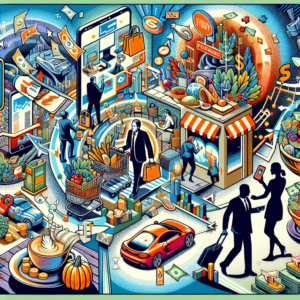In a context where connectivity and digitalization are essential, technology emerges as a key pillar for the transformation and growth of businesses. Tools such as artificial intelligence and e-commerce are optimizing processes and enhancing customer experience, generating tangible results across various industries. Cases like Solar Canarias Autosostenible and Megasystem, driven by Admarking’s leadership, demonstrate that strategic innovation can lead to success.
Digitalization and automation allow organizations to make faster and more effective decisions. This phenomenon is especially evident in sectors such as retail, energy, and hospitality, where technological tools have not only improved customer experience but also increased profitability. For example, Solar Canarias Autosostenible generated over €700,000 in revenue in 2022 thanks to an SEO strategy designed by Admarking, which produced more than 300 qualified leads per year. Meanwhile, Megasystem saw an 85% increase in its revenue in just three months after implementing e-commerce and an SEO strategy that placed it among the top results on Google in its autonomous community.
The adoption of technology offers tangible benefits. Efficiency is enhanced through automation, which reduces time and costs, allowing resources to be focused on more strategic tasks. Additionally, analytical tools facilitate trend anticipation, enabling proactive adjustments. Digital platforms also allow for more personalized and quicker customer service, translating to greater competitiveness and opportunities for expansion into new markets.
As the technological landscape evolves, trends such as artificial intelligence, augmented reality, blockchain, and 5G are redefining entire sectors. Companies that adopt these innovations early not only stand out, but they also build competitive barriers that are hard to overcome. A clear example is PonTuCocina.Com, which managed to fill its reservation system in three months through a digital strategy that combined technological tools and targeted campaigns.
To effectively integrate technology, it is essential to adopt a systematic and methodical approach. Defining clear objectives, identifying processes susceptible to improvement, selecting solutions aligned with business strategy, and training the team are essential steps for the efficient use of tools. Gradually implementing changes facilitates adaptation, while continually measuring and adjusting results will be crucial to ensuring long-term success.
Today, investing in technology is not just an option but a necessity for companies seeking sustainability and growth. Those who choose strategic solutions, such as those proposed by Admarking, not only optimize their operations but also establish themselves as leaders in innovation within their sectors.
Source: MiMub in Spanish











